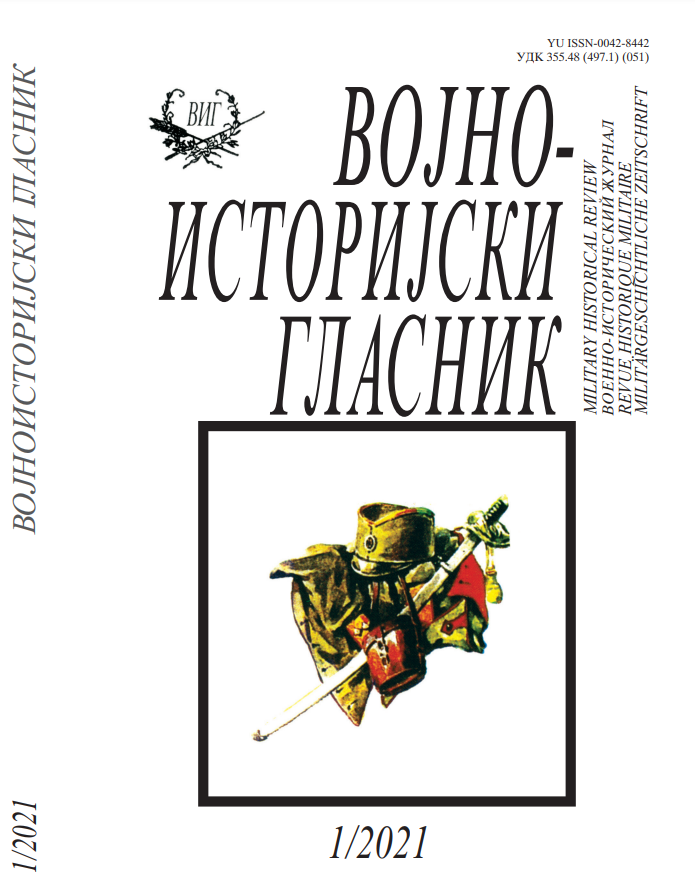НЕКОЛИКО АУСТРО-УГАРСКИХ ДОКУМЕНАТА ИЗ ВРЕМЕНА ОКУПАЦИЈЕ НОВОПАЗАРСКОГ И СЈЕНИЧКОГ КРАЈА (1915-1918)
SEVERAL DOCUMENTS FROM THE PERIOD OF THE AUSTRO-HUNGARIAN OCCUPATION OF THE NOVI PAZAR AND SJENICA REGION (1915-1918)
Author(s): Redžep ŠkrijeljSubject(s): Military history, Pre-WW I & WW I (1900 -1919)
Published by: Institut za strategijska istraživanja
Keywords: Austria-Hungary; documents; Military General Government; Southwester Serbia; occupation; Novi Pazar and Sjenica region; healthcare
Summary/Abstract: A selection of several archive documents from the period of the Austro-Hungarian occupation of southwestern Serbia describe the military-political, economic and healthcare situation in the Novi Pazar and Sjenica regions. The failures at the Easter Theater have proven that 1916 was one of the most difficult years for Austria-Hungary. The increasing power of the Antanta forces led by Russia on the Eastern Front, which were subsequently strengthened by Italy (1915) and Romania, resulted in the overextension of Austrian-Hungarian forces on several fronts and caused the need for reinforcements and new equipment. The engagement of Germany on the Western Theater, forced Austria-Hungary to ask for help from another military ally – the Ottoman Empire. A strong propaganda by Austria-Hungary in autumn 1916 and summer 1917 brought more than 10 thousand Muslim volunteers from southwestern Serbia to the military units of the XV Ottoman Corpse fighting on the Galician Front. The Turkish military leadership was convinced that the expedition of Muslim volunteers in Galicia will propel the Axis victory on the Eastern Front and prevent a possible Russian occupation of the Balkans. The occupying forces needed to organize adequate healthcare facilities for the population with the aim of preventing frequent ilnesses and epidemics. A biggest problem was the epidemics of typhus, which took many lives and couldn’t be eradicated until the end of the occupation. The holders of the trade capital which was developing under the control of the Kreiskommando of the Military-General Government were the Spahić brothers from Sjenica. The monopoly was under the control of Rizah Bey Muratbegović and Rušid Efendi Bajrakatarović from Novi Pazar, Nedžip Bey Draga and Riza Deva from the county of Kosovska Mitrovica.The local population met the end of the war in 1918 under difficult circumstances and general scarcity. Total anarchy was prevented after the withdrawal of the Austro-Hungarian occupation army and the organs of management in Novi Pazar. This was due to efforts of prominent citizens, Muslims and Serbs, which organized a temporary government with an ethnically mixed structure that mobilized groups of citizens for maintaining public order. This continued until November 1918 when the Serbian Army entered the city.
Journal: Vojnoistorijski glasnik
- Issue Year: 2021
- Issue No: 1
- Page Range: 235-275
- Page Count: 41
- Language: Serbian

